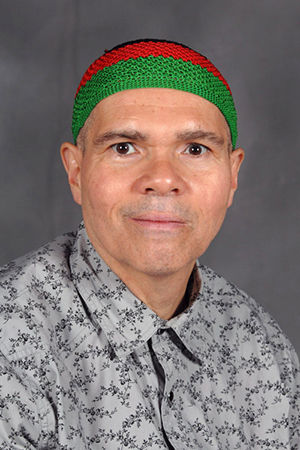Tenure protects Pino’s employment after controversial Israel/Palestine comments
September 14, 2014
A Kent State associate history professor’s recent comments about the conflict in Israel and Palestine were met with severe backlash from the public, but his tenure protects him from any repercussions from the university.
Julio Pino, a convert to Islam, sent a letter to History News Network, an academic online publication run by George Mason University in Fairfax, Va., that was published on Aug. 2. In the letter, Pino blamed pro-Israel scholars on the website for the deaths of Palestinians in the Israel-Palestine conflict.
“I hold you directly responsible for the murder of over 1,400 Palestinian children, women and elderly civilians over the past month,” he said. “Your names are scrawled on every bullet fired, bomb dropped, body buried and burnt forehead in Gaza.”
The story drew attention on social media, including from news organizations such as the Chronicle of Higher Education, the Cleveland Plain Dealer, the Akron Beacon Journal and Watchdog.org.
Provost Todd Diacon said while he couldn’t discuss specific personnel cases, it is very difficult to strip a professor of his or her tenure, which Pino has.
Although tenure is not a guarantee of continuous employment, as long as professors are not facing any ethical, moral or legal issues in the classroom, they will most likely retain that continuous employment, he said.
“Tenure protects what the professor does in the classroom, and tenure protects what the professor does in her or his research,” Diacon said. “What [professors] do as a private citizen doesn’t really, unless they’re violating laws, it doesn’t really impact their condition of employment.”
According to the 1940 Statement of Principles on Academic Freedom and Tenure, found on the American Association of University Professors’ website, tenured professors are free to say whatever they want as U.S. citizens but have to exercise restraint in what they choose to say.
“When they speak or write as citizens, they should be free from institutional censorship or discipline, but their special position in the community imposes special obligations,” according to the statement. “As scholars and educational officers, they should remember that the public may judge their profession and their institution by their utterances. Hence they should at all times be accurate, should exercise appropriate restraint, should show respect for the opinions of others and should make every effort to indicate that they are not speaking for the institution.”
Kent State University’s chapter of the AAUP did not respond to requests for comment.
Pino said he’s been following the Israel-Palestine conflict for more than a decade and has always been vocal about his beliefs.
“I felt a personal responsibility [to bring attention to this issue] because no one else was,” he said.
Pino made headlines in 2011 when he shouted “death to Israel” during a speech by Ishmael Khaldi, Israel’s former deputy consul in San Francisco.
Associate history professor Kevin Adams said although he doesn’t know Pino very well, he thinks he’s a valuable colleague.
“I don’t know if anyone in the department is really super close with him, but we’re friendly,” he said. “[He is] kind of an eccentric man but a serious thinker, and students seem to like his classes.”
Adams said he defends Pino’s right to free speech, even if not everyone agrees with Pino’s opinions.
“It’s political speech. It’s a political issue,” Adams said. “Political speech is especially protected under the First Amendment, so people can hold all sorts of opinions, no matter how unpopular. I generally have the opinion that unpopular speech is sometimes necessary because first of all, it expresses our freedoms. Also, I think it’s important to get some of the ends of the spectrum in terms of political opinion. You need someone to be in the margins, I think, to have a more productive discussion as a society about any issue.”
He said he agrees with the AAUP’s belief that professors are free citizens protected by the First Amendment to say what they want.
“I think it’s important that people, no matter what their job is, should have the ability to be a citizen when they leave the office and express their own opinions without really necessarily any impact on their employment,” he said. “That’s part of our freedoms.”
Kenneth Bindas, professor and chair of Kent State’s history department, said in an email he had no comment on Pino’s letter “other than to support the university’s position,” referring to the official university statement released on Aug. 4.
According to the statement, “It has come to our attention that a Kent State University professor posted an online statement charging scholars with responsibility for civilian deaths in Gaza. We condemn the professor’s statement as reprehensible and irresponsible. At Kent State, we value collegiality and mutual respect. Assailing the public with broad statements of culpability violates these principles.”
Pino said he has not been contacted by the university or the department of history about his comments, nor have any of his colleagues said anything to him about the situation.
“I’ve been advocating this cause for more than a dozen years,” he said. “[My colleagues] know I’m not afraid to speak out, and they respect my right to speak out.”
He said he will continue to promote his pro-Palestinian message as the conflict continues and is pleased his letter sparked discussion.
“I accomplished my mission,” he said. “I got my message out to the widest audience as possible.”
Contact Emily Mills at [email protected].

























